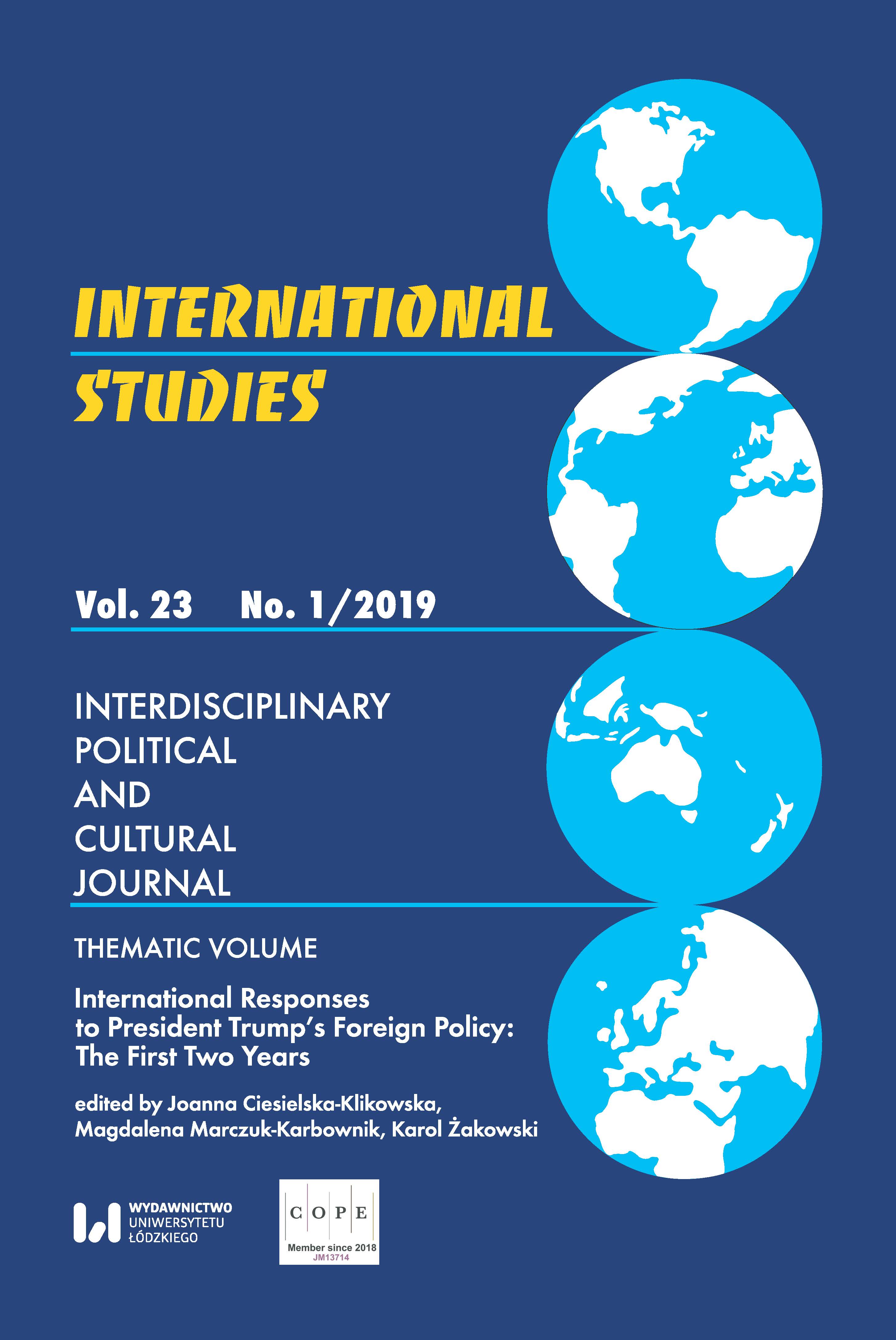A New Alliance against the US? Sino-Russian Relations in Response to Trump’s Redefined Foreign Policy Priorities
A New Alliance against the US? Sino-Russian Relations in Response to Trump’s Redefined Foreign Policy Priorities
Author(s): Przemysław CiborekSubject(s): Government/Political systems, Security and defense
Published by: Wydawnictwo Uniwersytetu Łódzkiego
Keywords: China; Russia; USA; Donald Trump; Barack Obama; Vladimir Putin; Xi Jinping; bilateral relations; Pivot to Asia; economic protectionism; economic sanctions
Summary/Abstract: The current state of bilateral relations between the Russian Federation and the People’s Republic of China is described by many international relations experts as the best in history. After taking the president office by Donald Trump, the bilateral relations between America and abovementioned powers are cooling down. Current foreign policy of the People’s Republic of China and the Russian Federation focuses on holding a common position in the international political arena, which is in fact an attempt to counterweight political influence of the US administration and their allies. The dimension of the strategic partnership between China and Russia is also determining the mutual economic dependence, which is now crucial for both powers to build a strong position on the international forum. In addition, Russia is one of the crucial partners for the Chinese-led Belt and Road Initiative (BRI) – by many recognized as the Chinese attempt to break the American economic domination. The collisional course of the American foreign policy towards Russia and China forces the latter to look for Central and Eastern European allies as well as to gain influence in the region of Central Asia which is leading to a constant increase in tensions between China and Russia.
Journal: International Studies: Interdisciplinary Political and Cultural Journal (IS)
- Issue Year: 23/2019
- Issue No: 1
- Page Range: 149-159
- Page Count: 11
- Language: English

